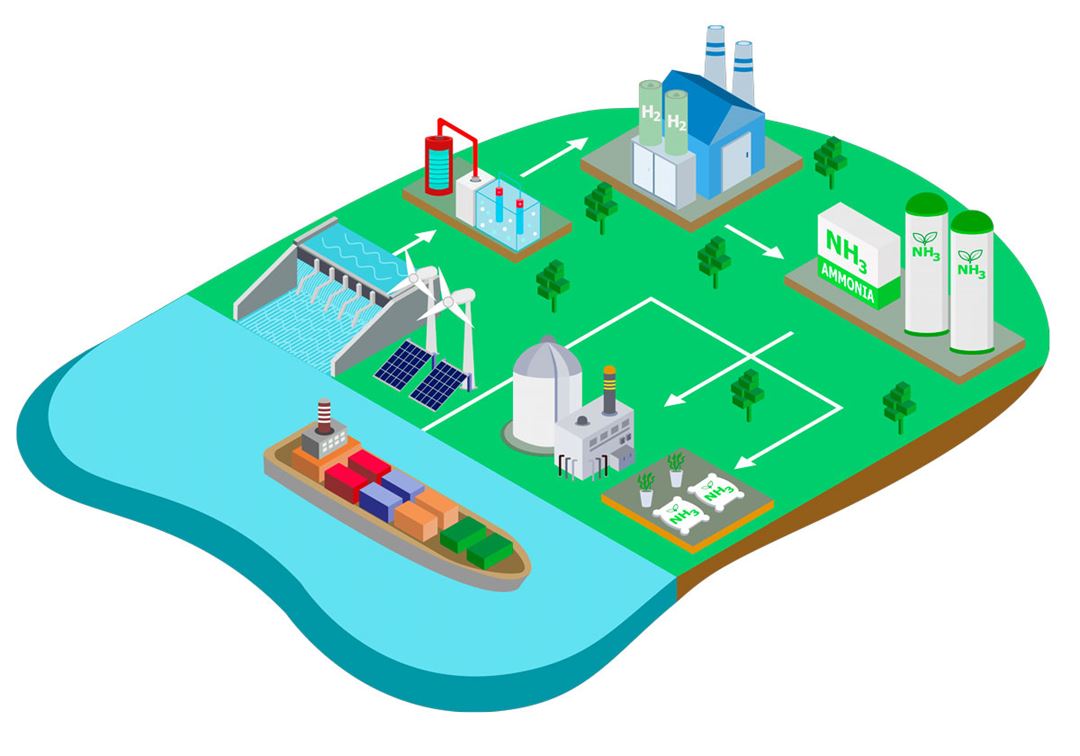The AMPROSE project is a research collaboration between Kaunas University of Technology and SINTEF that explores the role of green ammonia in future energy systems in the Baltic and Nordic countries. Industrially produced ammonia (NH3) is vital for global agriculture, supporting 40-60% of food production as a key fertilizer component. NH3 is also being promoted as a future zero-emission energy carrier for maritime transport, a sector that is aggressively targeting emissions cuts towards 2050.

NH3 is currently produced from fossil gas through the Haber-Bosch process and accounts for significant global CO2 emissions, but the molecule itself is carbon-free. AMPROSE will investigate different scenarios where wind, solar, hydropower and other renewable sources are included in the ammonia economy for the Baltic-Nordic region. Techno-economic analyses will calculate hourly power prices and how this affects the cost of green NH3 production. The project aims to provide valuable insights and guidance for policymakers, energy market participants, and investors seeking to accelerate the transition towards a more sustainable and resilient energy system in the Nordic and Baltic regions.
The project also aims to demonstrate electrochemical ammonia production using affordable and primarily non-critical raw materials as an alternative to the energy-intensive traditional Haber-Bosch process. The cell will be based on a proton-conducting ceramic electrolyte with a nitride electrode thin film.
SINTEF will make porous metal supports for thin-film depositions, test the full cell’s electrochemical performance and ammonia production rate, and support the techno-economic analysis.
